For years, I’ve interviewed a diverse spectrum of people who have tirelessly given of themselves to the betterment of their community, made sacrifices on our behalf while serving our country, or inspired us through the talents they’ve shared. They are the inspiring, the brave, the risk-takers, and the encouragers. They seek no recognition for their contributions and prefer the spotlight shine on those they serve rather than their contributions.
While it has been easy for me to celebrate their accomplishments through our newsletters, this time, I’m going out on a limb as, for the first time, I’m writing about someone whose literary talent as a writer, journalist, and author is somewhat intimidating. Those who read our newsletters have been complimentary of my writing style; however, this time, I feel like the kid who plays baseball in a schoolyard and is now stepping into the big leagues and asking to play with the New York Yankees.
I’ve gone through many drafts for this month’s interview and have been unsettled in my attempts to capture the essence of this talented lady and the multitude of life lessons that can be garnered from her books until now. Initially, I intended to write about my high school classmate’s success in becoming a highly acclaimed author. I had heard about her books for some time, but it wasn’t until recently when I set aside some time to read her book “No Past Tense,” that I knew there was much more I needed to share.
 D.Z. Stone, known as “Donna” to her classmates and close friends, grew up surrounded by her father’s “Polish Catholic” family, in a primarily Polish and Portuguese immigrant section of Mineola, Long Island, New York. Her early life is as interesting as the twists and turns in her novels. Growing up above her father’s bar, she met all kinds of people, from World War II veterans to the Polish and Portuguese people of the neighborhood; experiencing their cultural differences. Being of part-Jewish descent, Donna was more attuned to the inherent cultural bigotries than most of us kids during that time. As a teenager, Donna recalled how she first became aware of anti-Semitism when it was discovered that a Latvian war criminal by the name of Boleslavs Maikovskis had been living only blocks away from her family and whose home she passed on her way to church, the same church he attended every day. Donna said she knew his wife, a “regular” at her Grandmother’s weekly ladies’ Pokeno game. When it came out, he was a senior police officer in Latvia who ordered the mass execution of Jews, some of his neighbors felt the war was long over and were willing to move on and “let the old man alone.” Donna was shocked that people were willing to give him a “pass” even before they knew the details of the charges against him.
D.Z. Stone, known as “Donna” to her classmates and close friends, grew up surrounded by her father’s “Polish Catholic” family, in a primarily Polish and Portuguese immigrant section of Mineola, Long Island, New York. Her early life is as interesting as the twists and turns in her novels. Growing up above her father’s bar, she met all kinds of people, from World War II veterans to the Polish and Portuguese people of the neighborhood; experiencing their cultural differences. Being of part-Jewish descent, Donna was more attuned to the inherent cultural bigotries than most of us kids during that time. As a teenager, Donna recalled how she first became aware of anti-Semitism when it was discovered that a Latvian war criminal by the name of Boleslavs Maikovskis had been living only blocks away from her family and whose home she passed on her way to church, the same church he attended every day. Donna said she knew his wife, a “regular” at her Grandmother’s weekly ladies’ Pokeno game. When it came out, he was a senior police officer in Latvia who ordered the mass execution of Jews, some of his neighbors felt the war was long over and were willing to move on and “let the old man alone.” Donna was shocked that people were willing to give him a “pass” even before they knew the details of the charges against him.
When I asked Donna what sparked her interest in writing, she said she was somewhat encouraged when she would get papers back from her professors in college, and they would write across the top of the page, “Well Written!” Until then, she thought everyone could write and didn’t look at it from the perspective that perhaps she did have a writing talent. It wasn’t until her senior year at the College of William and Mary that Donna’s advisor heard she could write and suggested she take a writing course as an elective. Following her advisor’s advice, she took “playwriting,” to her surprise; Donna did well enough to feel she had finally found what she was meant to do: be a playwright! Unfortunately, after graduation, her career as a writer was put on hold as a fire destroyed her father’s bar and the family apartment upstairs, and she devoted her time to helping her family get back in business. Now up and running again, Donna packed her car with her Cocker Spaniel and drove to Ithaca, NY, where her boyfriend was in graduate school. Once there, she answered an ad for the “traffic manager” position at a local radio station. Having no idea what a traffic manager did, Donna humorously added, “It sounded better than making bagels and pumping gas.” She recalls going into WVBR-FM, a student-run commercial radio station independent from Cornell University, where she met with the station’s Personnel Director (Keith Olbermann) and General Manager (David Goldsmith), who convinced her if she took the position, she could enter the station’s training program that could potentially give her air clearance to go on the radio. With an opportunity such as this, Donna not only succeeded as a full-time traffic manager but also did the evening and weekend news and, for a time, hosted a Sunday talk show. In addition to all these hats she was now wearing, Donna wrote a daily feature called “90 Seconds”, which were short essays on any topic she wanted to write about that could be humorous, serious, or both. Soon, various board members of the radio station who heard Donna’s “90 Seconds” short essays approached her with other opportunities that included interviewing rock stars who came to Cornell and Ithaca and making radio documentaries for Cornell Media Services. Donna’s career as a journalist was born.
Eventually, Donna moved from Ithaca closer to New York City, where her writing career would take another turn to financial and corporate writing that would include a variety of formats such as articles, interactive text for computer speeches, scripts for commercials, annual reports, broker and investor brochures as well as talking points for media interviews. While this seems to be the furthest genre from her “90 Seconds” short essays, Donna said it was the collective variety of these writing formats she would use to create a “new narrative” structure in telling Salcer’s story in No Past Tense.
 No Past Tense: Love and Survival in the Shadow of the Holocaust is the intriguing story of the lives of William and Katarina Salcer, or as the reader will come to know them, Willi and Kati. Never intended to be a published biography, it was at their son Ron’s request to know the entire story of their lives, which had been too painful for them to share. Now, in the twilight years of their lives, Willi and Kati agreed to share their entire story; otherwise, as Kati said, “What’s the point?”
No Past Tense: Love and Survival in the Shadow of the Holocaust is the intriguing story of the lives of William and Katarina Salcer, or as the reader will come to know them, Willi and Kati. Never intended to be a published biography, it was at their son Ron’s request to know the entire story of their lives, which had been too painful for them to share. Now, in the twilight years of their lives, Willi and Kati agreed to share their entire story; otherwise, as Kati said, “What’s the point?”
With her vast experience as a writer who also holds a master’s degree in Cultural Anthropology from Columbia University, Donna masterfully takes you on the historical journey of Katarina Kellner (Kati) and William Salcer (Willi), two teenage Czech Jews from prominent families, who are unwittingly swept up by the Holocaust in Hungary and forced to survive in the notorious concentration camps of Auschwitz and Mauthausen. Through the intimacy of her year-long in-person interviews with Willi and Kati, their story took on a life of its own; as you are no longer reading history, you are living it.
It is not just a story of surviving the concentration camps but also a life lesson in overcoming the disappointments life throws you. Beginning with their harrowing escape to start a new beginning in Israel, Willi then used his engineering background to help fortify military tanks, develop a V belt product that reduced maintenance costs for the government, and served in the Israeli military, only to feel his country turned on him when they were fiscally short on money and audited his business at great expense to him; just some of the many disappointments they had to overcome.
Moving to America, New York in particular, Willi, a self-described “guy with a funny Czech accent” had difficulty finding a job. To support his family and with a keen eye to opportunity, the former factory owner and head of Israel’s Manufacturers Association, took a mid-level job with a button and bead maker. Willi would share his vision with his employers on how to grow their business while creating the machinery to increase productivity, only to be let go, told they were looking towards retirement. To get a better return, Willi went for a higher-risk investment, resulting in his losing his life savings and finding himself penniless and jobless in America.
With the enduring support of his loving wife, Willi finally goes on to create a business that becomes a huge success. While their story has a gratifying ending , Donna has masterfully taken the reader from two teenagers who have overcome significant obstacles to attain success to a teaching moment in survival, perseverance, and entrepreneurship while capturing the essence of true love.
What started as a son’s sole desire to learn of the historic journey his parents endured has evolved into an acclaimed biography in 673 universities and public libraries, Ivy League colleges, large state schools, and military academies. It is included in Catholic colleges as well as Jewish theological seminaries. Perhaps most impressive, No Past Tense resides in the Holocaust Museum in Washington D.C. and is permanently housed at the United States Holocaust Memorial Museum’s Shapell Center. It continues to get rave reviews, as Donna recently received a “thank you” from a Nobel Prize Winner for No Past Tense.
 D.Z. Stone and No Past Tense were recently featured in an LA Times article on the Salcers’ son Ron by the sportswriter Helene Elliot. Entitled “The most meaningful deal he ever negotiated. Hockey agent turned his parents’ experiences into a book, possibly movie too.” The article also features Dr. Holli Levitsky who teaches “No Past Tense” at Loyola Marymount University. Levitsky calls the book timeless on many levels, including learning about anti-Semitism, which can help students process and better understand current world events.
D.Z. Stone and No Past Tense were recently featured in an LA Times article on the Salcers’ son Ron by the sportswriter Helene Elliot. Entitled “The most meaningful deal he ever negotiated. Hockey agent turned his parents’ experiences into a book, possibly movie too.” The article also features Dr. Holli Levitsky who teaches “No Past Tense” at Loyola Marymount University. Levitsky calls the book timeless on many levels, including learning about anti-Semitism, which can help students process and better understand current world events.
Many of us can credit much of our success to those who inspired and encouraged us. For Donna, she is eternally grateful to our late former classmate and class President, George Gales, for convincing her that if possible she should go away to college and see more of the world, and that it was okay to let people know she was smart. He added, “Just don’t be a jerk about it.”
Some consider gifts the presents they receive, especially at this time of year. For me, it is making new friends, reconnecting with friends from years ago, and celebrating their accomplishments. Donna is that gift. She is much more than a classmate from Mineola High School in the 70s who has attained much-deserved success. As we reconnected, I found Donna is as she writes. She’s humble, compassionate, and relatable while celebrating the lives of others. More importantly, Donna is leaving a legacy where future generations can benefit from the life lessons that grace each page of her books. It’s a gift I hope to leave and one that isn’t just for the holiday season.
For those who have a love of history, make sure to read her other books, “A Fairy Tale Unmasked” and “Spies” which is featured in a collection of America’s most talented storytellers entitled “Coolest American Stories 2022.”
To all our friends both old and new, we hope this holiday season brings you much peace and joy and the New Year is full of good health, happiness and memories to be made.
-Gary Cardillo
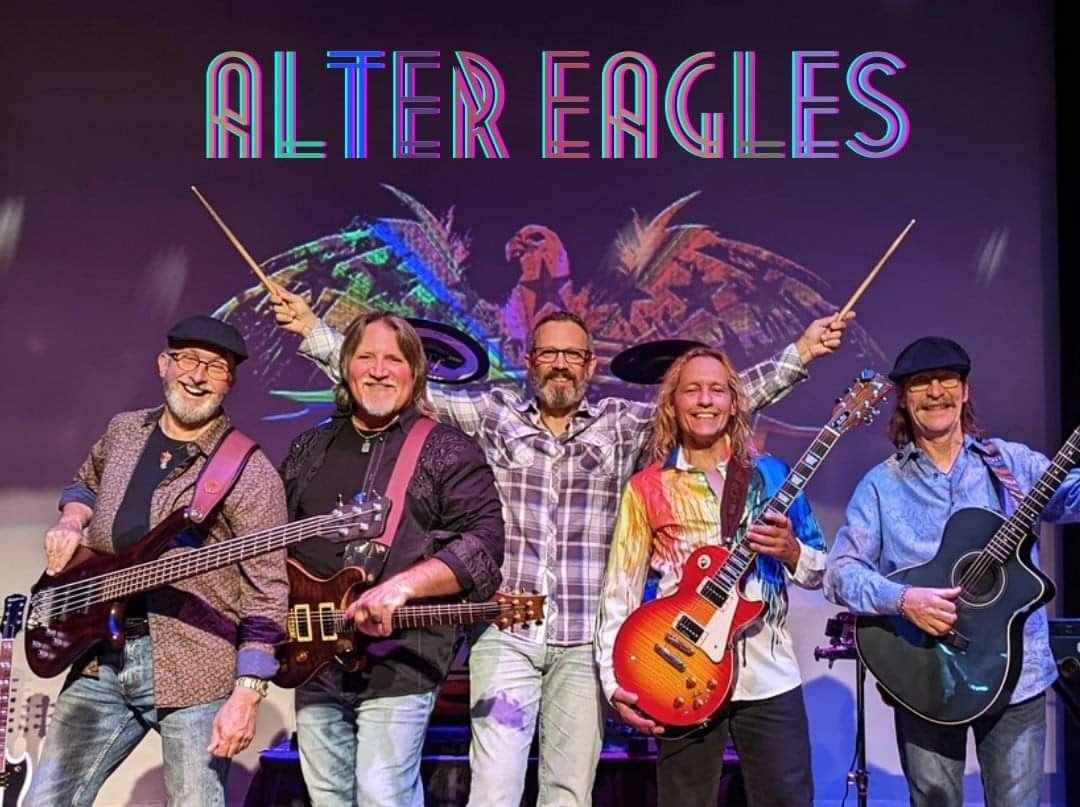
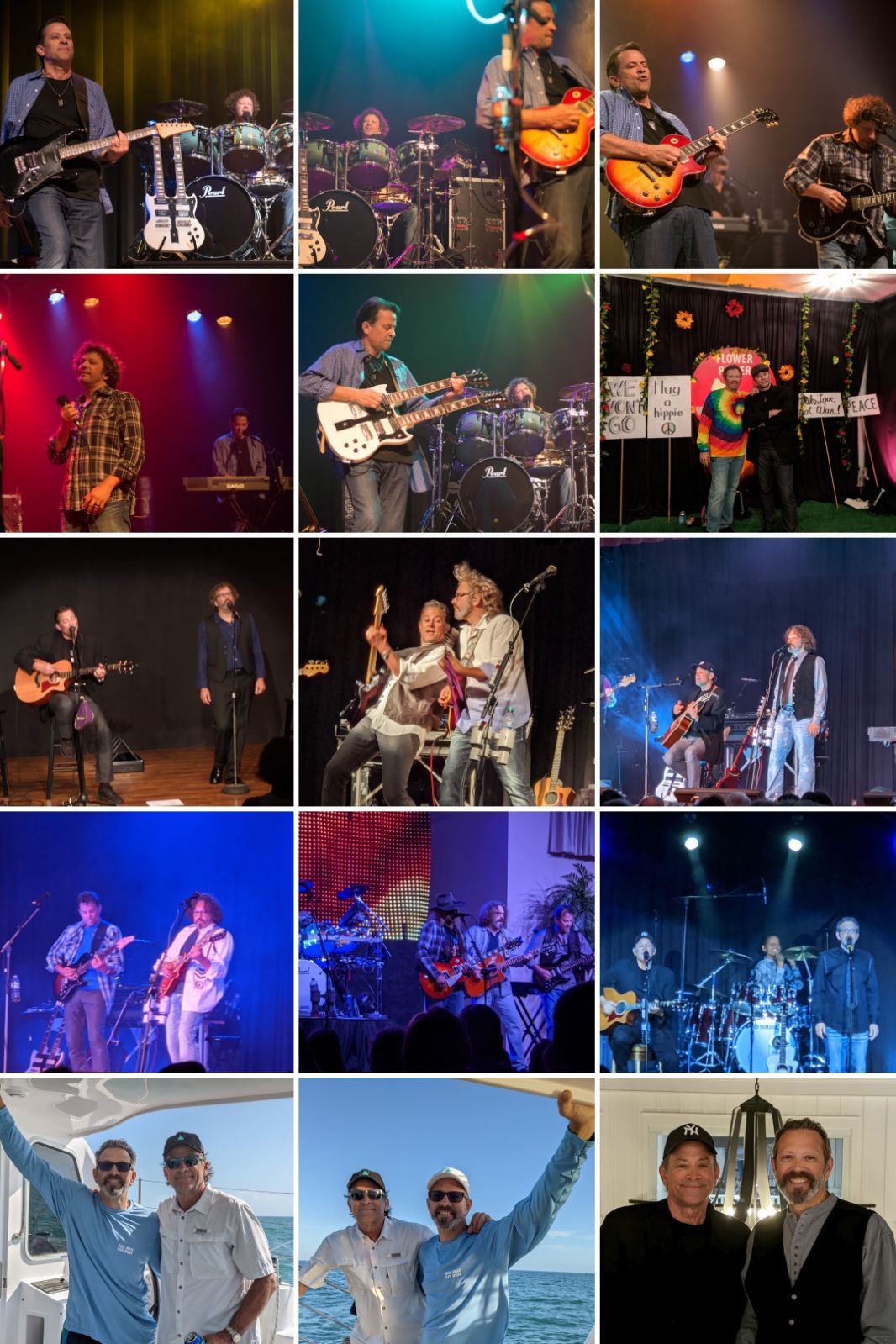

 Almost two years ago, my wife signed us up as members of St. Andrew’s South Golf Club, as it occurred to her I was spending too much time sitting behind a computer or working late into the evening, and my only outlet was doing yard work. Somewhere along the way, I became my father! I wasn’t doing anything fun in my spare time. Try explaining that to someone who spends half their year bundled up during the winter months, and they’ll think you lost your mind when you live on the water and close to a host of golf courses. Sure, there are more challenging courses than St. Andrews; for years, when asked why I didn’t join, I would tease and tell them that due to the relatively flat terrain of the course, that’s where they used to host the areas Greyhound races. Now before you think, “This guy must be some golfer,” let me tell you this course has gotten the better of me in more ways than one. While St. Andrew’s South may not be hosting the U.S. Open anytime soon, this club is second to none in terms of the people we’ve met and the friends we’ve made.
Almost two years ago, my wife signed us up as members of St. Andrew’s South Golf Club, as it occurred to her I was spending too much time sitting behind a computer or working late into the evening, and my only outlet was doing yard work. Somewhere along the way, I became my father! I wasn’t doing anything fun in my spare time. Try explaining that to someone who spends half their year bundled up during the winter months, and they’ll think you lost your mind when you live on the water and close to a host of golf courses. Sure, there are more challenging courses than St. Andrews; for years, when asked why I didn’t join, I would tease and tell them that due to the relatively flat terrain of the course, that’s where they used to host the areas Greyhound races. Now before you think, “This guy must be some golfer,” let me tell you this course has gotten the better of me in more ways than one. While St. Andrew’s South may not be hosting the U.S. Open anytime soon, this club is second to none in terms of the people we’ve met and the friends we’ve made. I consider myself very fortunate to have met so many wonderful people during my life that I’m blessed to call “friends.” Their backgrounds are as diverse as the world in which we live. Some have been politicians, others doctors, lawyers, law enforcement, and even those with rags-to-riches stories. While I love to celebrate their histories of accomplishment, the ones whose lives touch me most are those who passionately serve others, whether through personal sacrifice or by giving generously of their gifts and talents. Their backgrounds may differ vastly, but they desire to serve with little attention drawn to themselves. One such person is long-time friend Kim Amontree, whose contributions to our community read like a “Who’s Who.” Kim has served on the local school board as Vice Chair and as an integral member of a variety of boards and committees that include the “Punta Gorda Diversity Task Force,” “Charlotte County Chamber Government Affairs,” and “Charlotte County Reads” in addition to her various roles with the Florida School Boards Association. This association aims to increase student achievement by developing effective school board leadership and advocacy for public education.
I consider myself very fortunate to have met so many wonderful people during my life that I’m blessed to call “friends.” Their backgrounds are as diverse as the world in which we live. Some have been politicians, others doctors, lawyers, law enforcement, and even those with rags-to-riches stories. While I love to celebrate their histories of accomplishment, the ones whose lives touch me most are those who passionately serve others, whether through personal sacrifice or by giving generously of their gifts and talents. Their backgrounds may differ vastly, but they desire to serve with little attention drawn to themselves. One such person is long-time friend Kim Amontree, whose contributions to our community read like a “Who’s Who.” Kim has served on the local school board as Vice Chair and as an integral member of a variety of boards and committees that include the “Punta Gorda Diversity Task Force,” “Charlotte County Chamber Government Affairs,” and “Charlotte County Reads” in addition to her various roles with the Florida School Boards Association. This association aims to increase student achievement by developing effective school board leadership and advocacy for public education.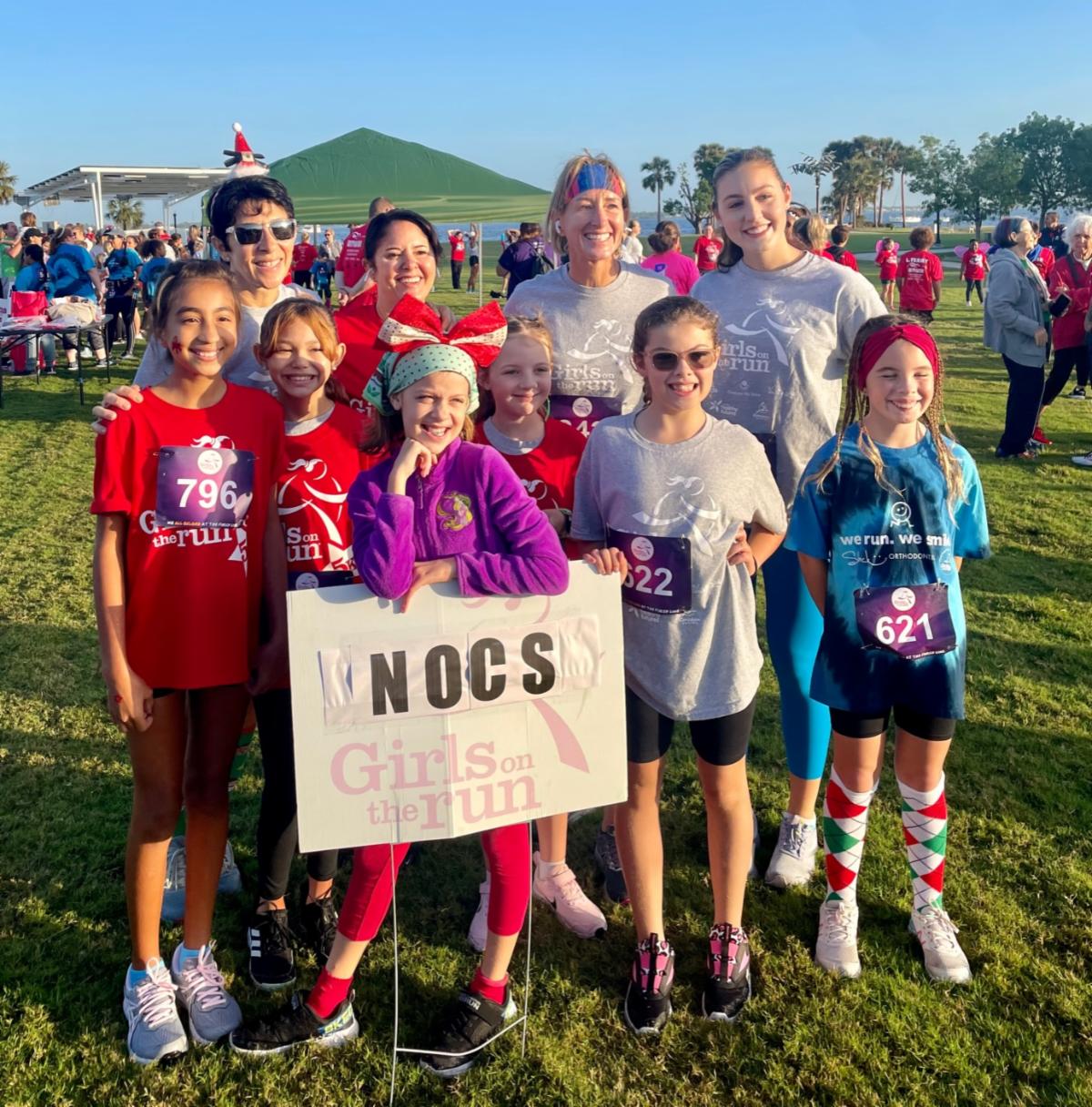 Simply put, the FSBA is the “voice of education in Florida,” which Kim has served on multiple committees and continues today as co-Chair of the Legislative sub-Committee. Kim’s involvement with the community is just as comprehensive as she serves on the Board of Directors for the YMCA of Southwest Florida and is “Chair of the Punta Gorda YMCA Community Board.” Her passion for children does not end there as she is a “Coalition Member of Drug-Free Punta Gorda,” a “Volunteer Reading Buddy.” She has also served as a mentor for Take Stock in Children and a coach for Girls on the Run. I’ve often felt Kim was the person I would call if my house were on fire as she’d be the first one on the scene and have it under control before the fire trucks arrived. She’s not one to sit back and hope for change; she’s a team player who will invoke the change.
Simply put, the FSBA is the “voice of education in Florida,” which Kim has served on multiple committees and continues today as co-Chair of the Legislative sub-Committee. Kim’s involvement with the community is just as comprehensive as she serves on the Board of Directors for the YMCA of Southwest Florida and is “Chair of the Punta Gorda YMCA Community Board.” Her passion for children does not end there as she is a “Coalition Member of Drug-Free Punta Gorda,” a “Volunteer Reading Buddy.” She has also served as a mentor for Take Stock in Children and a coach for Girls on the Run. I’ve often felt Kim was the person I would call if my house were on fire as she’d be the first one on the scene and have it under control before the fire trucks arrived. She’s not one to sit back and hope for change; she’s a team player who will invoke the change.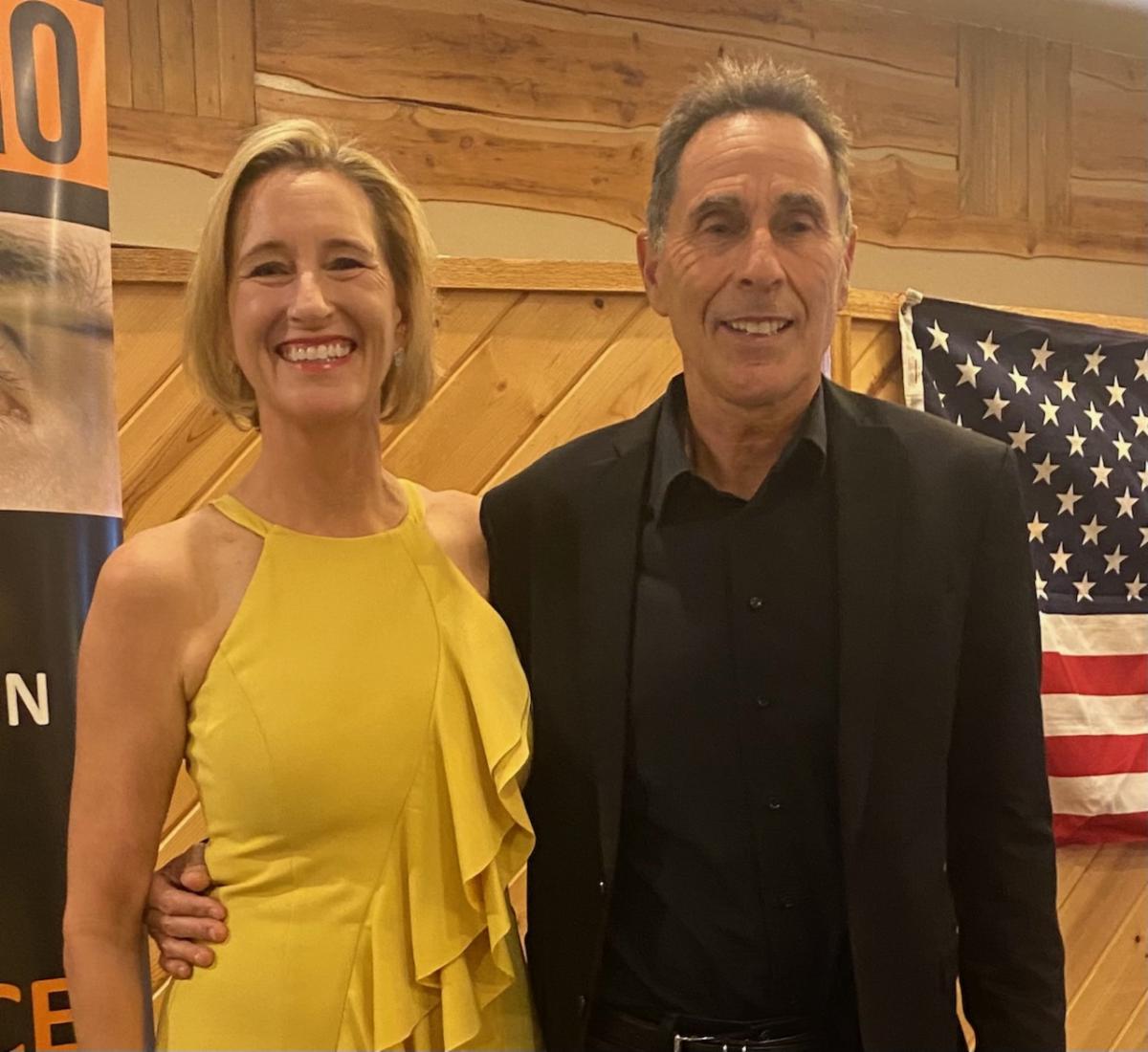 I often ask those looking to move to our area what brought them here. For Kim, it was an opportunity for her husband Jim, a highly respected Gastroenterologist, to join the Intermedic practice years ago. Kim recalled how they met through a group of friends while both were living in Albuquerque, New Mexico. They weren’t dating for long when Kim had an opportunity to move to New Orleans, working with NCR, a world-leading enterprise technology provider of software, hardware, and services for large banks and other entities. Jim was an Assistant Professor at the University of New Mexico when a close physician friend notified him of the Intermedic opportunity. Kim jokingly said, “I told Jim I wasn’t moving just for love. It would be for a ring, a house, and a dog.” So in 1991, they made the move and never looked back. Despite being on a fast track herself, Kim put her career on hold to help Jim open his practice which came to fruition in 1999. Years later, having helped create a thriving medical practice and raising three gifted children, Kim said, “Life is short, and I wanted to spend time doing things that matter.” Those who know Kim know of her passion for community and children specifically. Having been a Realtor myself for 20 years, the questions from those looking to move to our area center around medical services and education, the question most dear to Kim’s heart.
I often ask those looking to move to our area what brought them here. For Kim, it was an opportunity for her husband Jim, a highly respected Gastroenterologist, to join the Intermedic practice years ago. Kim recalled how they met through a group of friends while both were living in Albuquerque, New Mexico. They weren’t dating for long when Kim had an opportunity to move to New Orleans, working with NCR, a world-leading enterprise technology provider of software, hardware, and services for large banks and other entities. Jim was an Assistant Professor at the University of New Mexico when a close physician friend notified him of the Intermedic opportunity. Kim jokingly said, “I told Jim I wasn’t moving just for love. It would be for a ring, a house, and a dog.” So in 1991, they made the move and never looked back. Despite being on a fast track herself, Kim put her career on hold to help Jim open his practice which came to fruition in 1999. Years later, having helped create a thriving medical practice and raising three gifted children, Kim said, “Life is short, and I wanted to spend time doing things that matter.” Those who know Kim know of her passion for community and children specifically. Having been a Realtor myself for 20 years, the questions from those looking to move to our area center around medical services and education, the question most dear to Kim’s heart.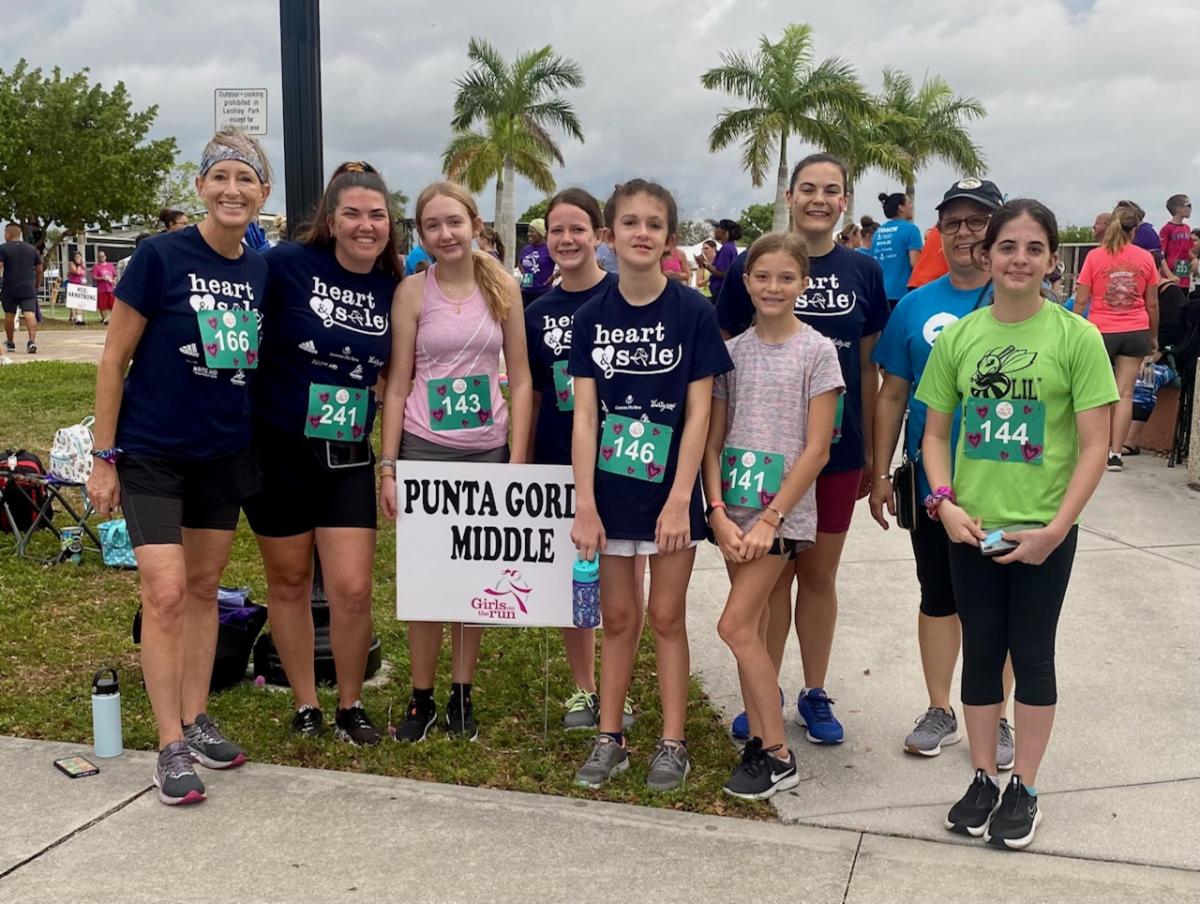 Few of us would disagree that we live in a world fraught with many issues, from health and finance to the environment. Kim reflected, “Unfortunately, the problems in society we face today the next generation is going to have to solve, and that comes through education.” Equally challenging is the environment our educators face today. Aside from the lack of decorum exhibited in debates of opposing thoughts and philosophies, you hear in classrooms and on college campuses throughout the country, not to mention security challenges, Kim said, “There is a direct tie to the impact on educational performance that stems from socio-economic conditions. Approximately 60% of the children are “direct certified” (receiving some form of government assistance). Over 90% are considered “economically needy.” While the pandemic had devastating effects on the 2020-2021 school year, where 30% of the children missed more than ten days of school, a dramatic increase from the 12% norm, Kim said, “The Charlotte County school system wasn’t going to take the foot off the gas; the students were expected to learn the curriculum.” In 2021, the Charlotte County School System had its highest graduation rate of 91%. Not only did more children graduate, but they scored in the top tier of Florida’s Advance Placement Standardized Test.
Few of us would disagree that we live in a world fraught with many issues, from health and finance to the environment. Kim reflected, “Unfortunately, the problems in society we face today the next generation is going to have to solve, and that comes through education.” Equally challenging is the environment our educators face today. Aside from the lack of decorum exhibited in debates of opposing thoughts and philosophies, you hear in classrooms and on college campuses throughout the country, not to mention security challenges, Kim said, “There is a direct tie to the impact on educational performance that stems from socio-economic conditions. Approximately 60% of the children are “direct certified” (receiving some form of government assistance). Over 90% are considered “economically needy.” While the pandemic had devastating effects on the 2020-2021 school year, where 30% of the children missed more than ten days of school, a dramatic increase from the 12% norm, Kim said, “The Charlotte County school system wasn’t going to take the foot off the gas; the students were expected to learn the curriculum.” In 2021, the Charlotte County School System had its highest graduation rate of 91%. Not only did more children graduate, but they scored in the top tier of Florida’s Advance Placement Standardized Test. Kim’s decision to join an organization or board comes down to one significant fact, “Does it benefit the children of the community?” I’ve always felt we educate our children to benefit other cities and towns across the country since, historically, there have been limited employment opportunities locally. Kim said they could benefit from higher-paying jobs by providing workforce opportunities to serve the community’s growth, such as aviation, where students can graduate with FAA certifications. Kim continued by saying that with the cost of education reaching all-time highs, providing white-collar opportunities without going through a four-year college program would reduce student loan debt and enable these students to earn a good living in less time. She added, “If you want better medicine and services, you must support and have confidence in the school system.” By passing the “Yes For Success” referendum, teachers’ salaries increased from $38,000 to $54,000, which is one of the highest in the state. The referendum enabled the school system to address the psychological impact many children face today. Succinctly stated, “Schools are the front line of mental health issues.” As a result of the passage of the referendum, they were able to triple the number of social workers and double the number of psychologists.
Kim’s decision to join an organization or board comes down to one significant fact, “Does it benefit the children of the community?” I’ve always felt we educate our children to benefit other cities and towns across the country since, historically, there have been limited employment opportunities locally. Kim said they could benefit from higher-paying jobs by providing workforce opportunities to serve the community’s growth, such as aviation, where students can graduate with FAA certifications. Kim continued by saying that with the cost of education reaching all-time highs, providing white-collar opportunities without going through a four-year college program would reduce student loan debt and enable these students to earn a good living in less time. She added, “If you want better medicine and services, you must support and have confidence in the school system.” By passing the “Yes For Success” referendum, teachers’ salaries increased from $38,000 to $54,000, which is one of the highest in the state. The referendum enabled the school system to address the psychological impact many children face today. Succinctly stated, “Schools are the front line of mental health issues.” As a result of the passage of the referendum, they were able to triple the number of social workers and double the number of psychologists.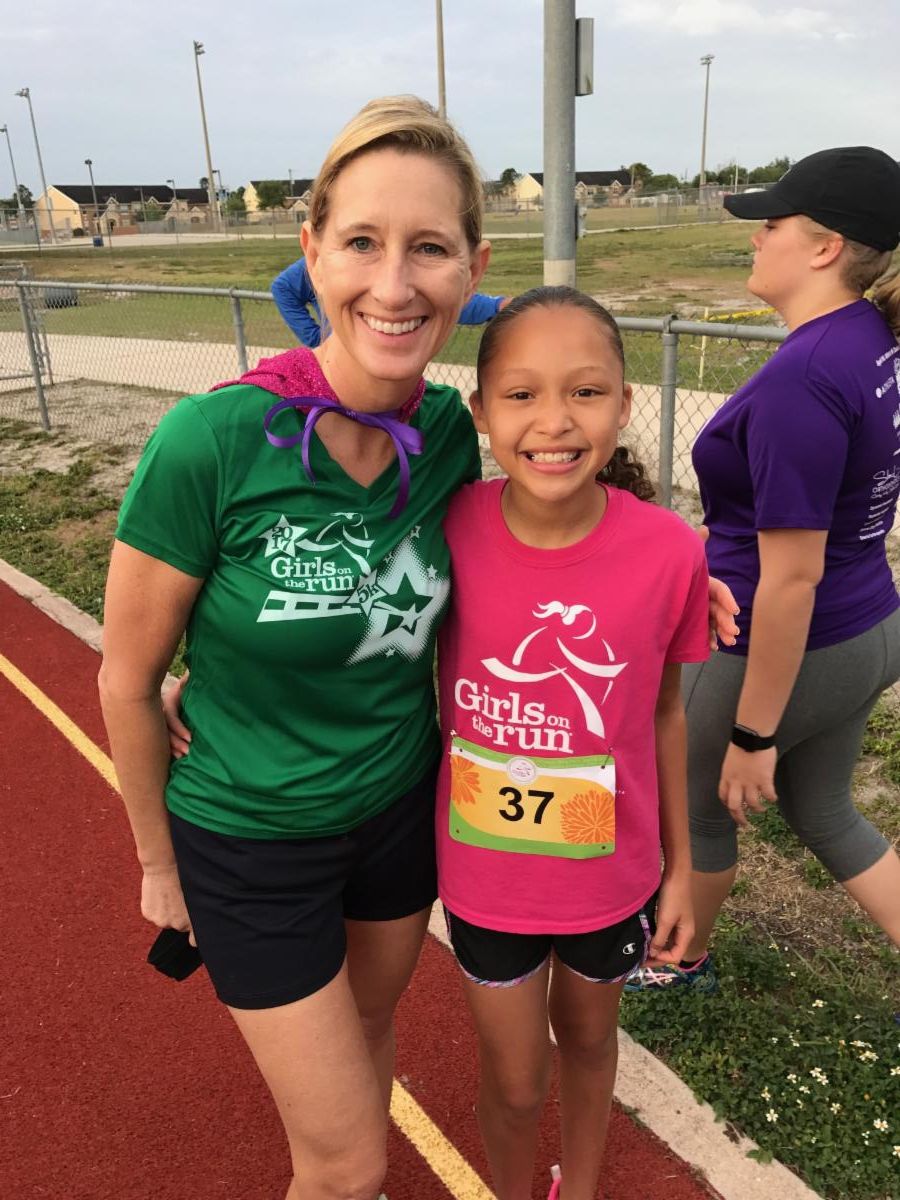 Kim continued, “Discipline is one of the biggest barriers to educational success. It only takes a two percent discipline problem in a class to impact the other ninety-eight percent.” When you factor in some families’ socio-economic challenges, taking 20 minutes a day to read with a child is often compromised. Kim added, “Some parents don’t know what they don’t know.” Reading with your child stimulates from a knowledge base perspective and builds a stronger parental bond.” I have often thought with the absence of this bond; one can only assume there is a correlation as to why we see so many issues manifesting in today’s generations.
Kim continued, “Discipline is one of the biggest barriers to educational success. It only takes a two percent discipline problem in a class to impact the other ninety-eight percent.” When you factor in some families’ socio-economic challenges, taking 20 minutes a day to read with a child is often compromised. Kim added, “Some parents don’t know what they don’t know.” Reading with your child stimulates from a knowledge base perspective and builds a stronger parental bond.” I have often thought with the absence of this bond; one can only assume there is a correlation as to why we see so many issues manifesting in today’s generations. While most people would like to talk about themselves, Gary and Gail have always put their clients first, and their diverse backgrounds have provided their clients an unparalleled level of service and knowledge throughout the past years.
While most people would like to talk about themselves, Gary and Gail have always put their clients first, and their diverse backgrounds have provided their clients an unparalleled level of service and knowledge throughout the past years.